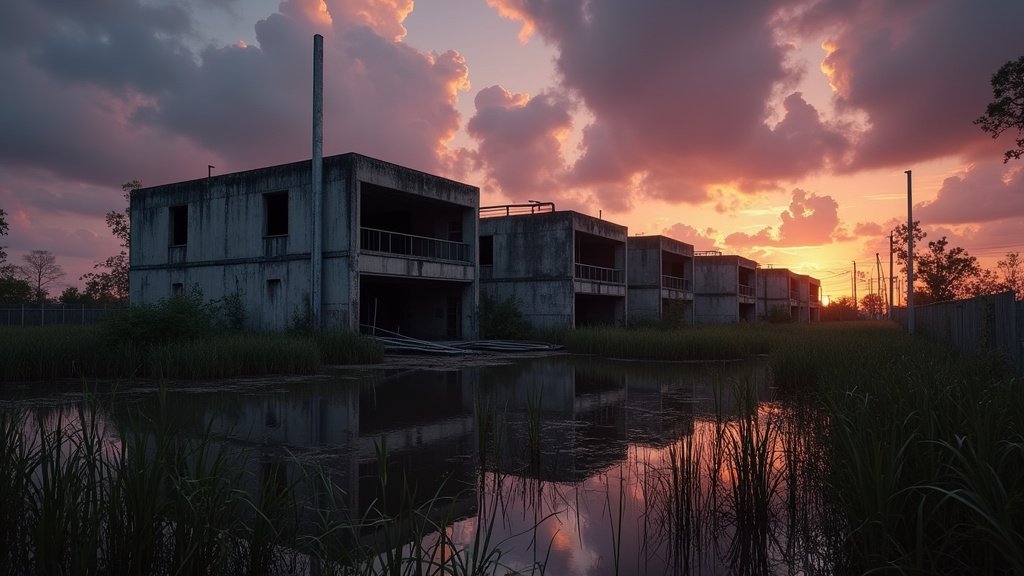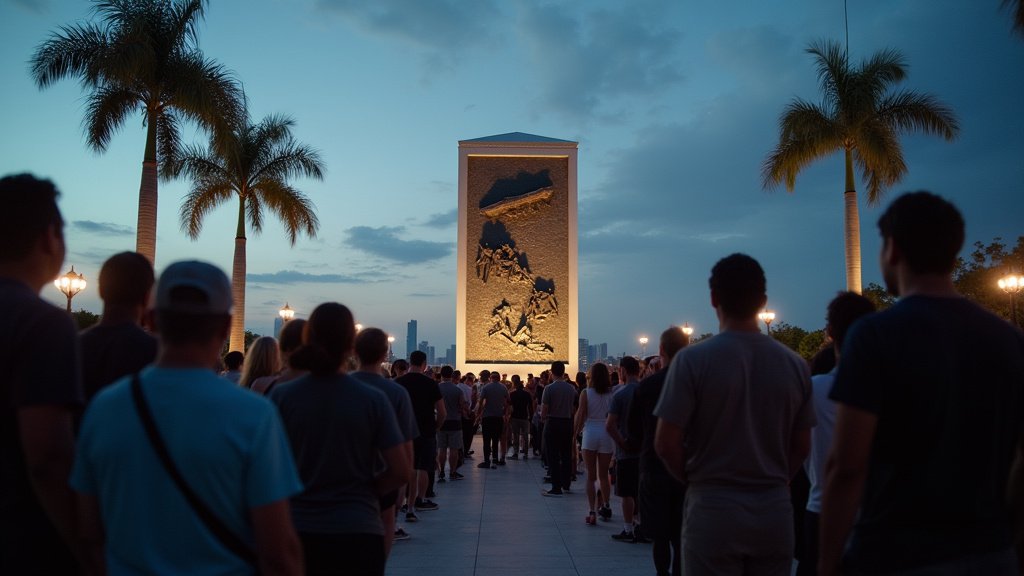Miami-Dade Mayor Daniella Levine Cava has welcomed a federal judge’s decision to order the shutdown of the controversial ‘Alligator Alcatraz’ immigration detention center in the Florida Everglades. The ruling, which cites significant environmental damage and a lack of proper review, mandates that the facility cease operations within 60 days, marking a critical moment in the ongoing saga of this unique and contentious facility. This significant development in current affairs has drawn widespread attention to the intersection of immigration policy and environmental protection in South Florida.
‘Alligator Alcatraz’ Faces Closure: A Judge’s Verdict
A federal judge has delivered a significant blow to the Trump and DeSantis administrations’ immigration enforcement efforts by ordering the winding down of operations at the ‘Alligator Alcatraz’ detention center. U.S. District Judge Kathleen Williams issued a preliminary injunction on Thursday, effectively barring the transfer of new detainees to the facility and mandating the removal of much of its infrastructure within 60 days. The ruling stems from lawsuits filed by environmental groups and the Miccosukee Tribe of Indians, who argued that the facility’s rapid construction and operation caused irreparable harm to the fragile Everglades ecosystem and violated federal environmental laws.
Judge Williams found that the state and federal governments failed to conduct necessary environmental reviews, such as those required by the National Environmental Policy Act (NEPA) and the Endangered Species Act, before erecting the detention center. The court cited the potential for considerable environmental impacts, including habitat loss and increased mortality for endangered species, as well as potential harm to the Miccosukee Tribe’s traditional lands and water supply. Consequently, the judge ordered the removal of fencing, lighting, generators, fuel, sewage, and waste receptacles from the site.
Background: The Rise of ‘Alligator Alcatraz’
Dubbed ‘Alligator Alcatraz’ due to its remote location in the Everglades, surrounded by natural wildlife and difficult terrain, the facility officially known as the South Florida Detention Facility was hastily constructed on an existing airstrip. Announced in June 2025, the center was positioned as a key component of the federal government’s strategy to manage and deport undocumented migrants. Florida Governor Ron DeSantis championed the facility, which was designed to hold thousands of detainees and was even toured by former President Donald Trump, who praised its security.
However, from its inception, ‘Alligator Alcatraz’ has been mired in controversy. Environmentalists and human rights advocates raised immediate concerns about its ecological impact on the protected Everglades wetlands and the potential for inhumane conditions for detainees. Reports from within the facility have described issues such as unsanitary living conditions, inadequate access to water and medical care, and even hunger strikes by detainees protesting these conditions. The facility’s operations also drew criticism for a perceived lack of transparency and local coordination.
Miami-Dade Mayor’s Response: From Concern to Celebration
Miami-Dade County Mayor Daniella Levine Cava has been a vocal critic of the detention center since its announcement. She has repeatedly voiced concerns about the project’s recklessness, its danger to detainees, and its significant risk to the natural environment. “From the very beginning, I have sounded the alarm about this reckless and dangerous project,” Mayor Levine Cava stated, emphasizing the lack of transparency, local coordination, and disregard for detainees and the environment.
Following the judge’s ruling, Mayor Levine Cava expressed her satisfaction. “I welcome today’s decision by the court to temporarily halt construction at the so-called ‘Alligator Alcatraz.’ This pause is necessary and overdue,” she said in a statement. She highlighted that the ruling validates the serious concerns she had raised regarding the development of the facility. The mayor also noted that as the county owns the land, Miami-Dade would need to manage the aftermath of the facility’s eventual closure, expressing a desire to return the property to its natural state and indicating that county attorneys would review potential legal actions.
Legal Battles and Environmental Imperatives
The lawsuit that led to the winding down order was brought by a coalition including Friends of the Everglades and the Center for Biological Diversity, alongside the Miccosukee Tribe. Their legal challenge asserted that the facility’s construction and operation violated the National Environmental Policy Act (NEPA) and other federal environmental statutes. The Miccosukee Tribe, in particular, emphasized that the lands in question are sacred to their people and that the facility’s presence threatened their cultural heritage and traditional use of the land.
Beyond the environmental claims, separate legal actions have also targeted alleged human rights abuses and due process violations for detainees. While one judge, Rodolfo Ruiz, dismissed some claims in a related lawsuit, citing mootness and venue issues, Judge Williams’ ruling on environmental grounds represents a significant victory for the plaintiffs. The legal complexities highlight the ongoing tension between federal immigration enforcement priorities and state and local environmental regulations, as well as the rights of vulnerable populations.
State’s Reaction and Future Outlook
Governor Ron DeSantis’ administration has indicated its intention to challenge Judge Williams’ decision. The state filed a notice of appeal shortly after the ruling, with the governor labeling the judge an “activist judge” attempting to make policy from the bench. DeSantis has defended the facility, asserting that it is crucial for immigration enforcement and that the state will “respond accordingly.” This stance underscores the deep political divisions surrounding immigration policy and the state’s role in managing it.
Adding to the shifting landscape of immigration detention in Florida, the state has announced plans to convert the Baker Correctional Institution in North Florida into a second state-run immigration detention site, which Governor DeSantis has dubbed the ‘Deportation Depot.’ This move suggests that despite the setback for ‘Alligator Alcatraz,’ Florida remains committed to expanding its capacity for immigration detention.
Current Affairs and Broader Implications
The federal judge’s order to wind down ‘Alligator Alcatraz’ is a pivotal moment in the current affairs of immigration and environmental law. It highlights the critical importance of environmental reviews for federal actions, especially in ecologically sensitive areas. The ruling also brings into sharp focus the responsibilities of local governments, like Miami-Dade County, in managing federal projects on their land and the broader implications for community well-being.
As the state appeals the decision, the future of ‘Alligator Alcatraz’ remains uncertain. However, the judge’s order has provided a substantial reprieve for the Everglades and a moment of vindication for those who advocated for stricter environmental oversight and humane treatment of detainees. This news story will continue to unfold as the legal battles progress and Florida navigates its role in the national immigration debate.





